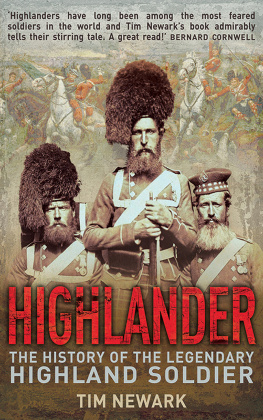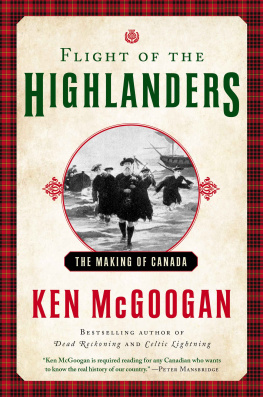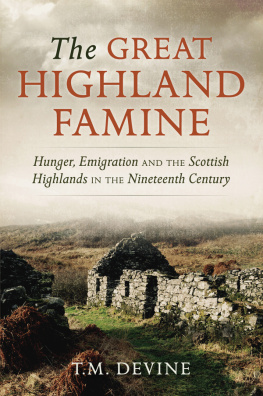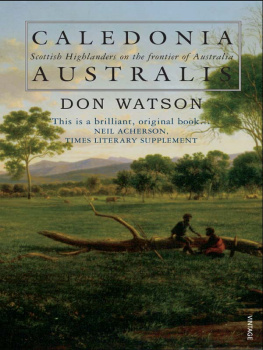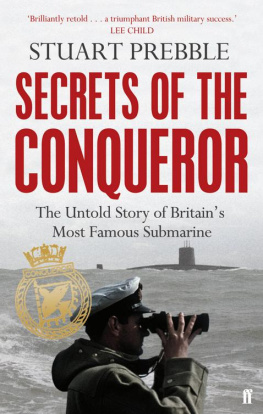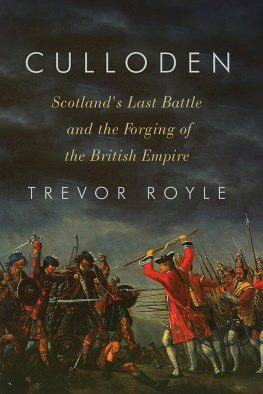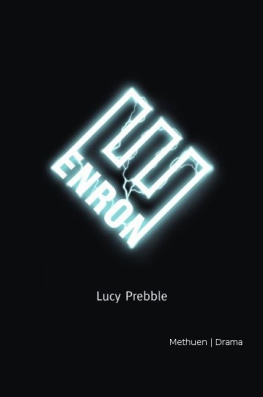PENGUIN BOOKS
THE HIGHLAND CLEARANCES
John Prebble was born in Middlesex in 1915 but spent his boyhood in Saskatchewan, Canada. He became a journalist in 1934 and is now a historian, novelist, film-writer and the author of several highly praised plays and dramatized documentaries for BBC television and radio. During the war he served for six years in the ranks with the Royal Artillery and later wrote a war novel, The Edge of Darkness, based on his experiences. He is the author of Age Without Pity, The Mather Story, The High Girders, an account of the Tay Bridge Disaster, The Buffalo Soldiers, which won an award in the United States for the best historical novel of the American West, and Culloden, a subject he became interested in when he was a boy in a predominantly Scottish township in Canada. Culloden was subsequently made into a successful television film. His other books include The Highland Clearances (1963), Glencoe (1966), The Darien Disaster (1968), The Lion in the North (1971), Mutiny: Highland Regiments in Revolt (1975), John Prebble's Scotland (1983), The King's Jaunt (1988) and Landscapes and Memories: an intermittent autobiography, for which he was awarded the McVitie Prize for Scottish Writer of the Year, 1993. Many of his books are published by Penguin.
JOHN PREBBLE
THE HIGHLAND CLEARANCES
Since you have preferred sheep to men, let sheep defend you!

PENGUIN BOOKS
in association with Martin Secker & Warburg Ltd
PENGUIN BOOKS
Published by the Penguin Group
Penguin Books Ltd, 80 Strand, London WC2R 0RL, England
Penguin Putnam Inc., 375 Hudson Street, New York, New York 10014, USA
Penguin Books Australia Ltd, 250 Camberwell Road, Camberwell, Victoria 3124, Australia
Penguin Books Canada Ltd, 10 Alcorn Avenue, Toronto, Ontario, Canada M4V 3B2
Penguin Books India (P) Ltd, 11 Community Centre, Panchsheel Park, New Delhi 110 017, India
Penguin Books (NZ) Ltd, Cnr Rosedale and Airborne Roads, Albany, Auckland, New Zealand
Penguin Books (South Africa) (Pty) Ltd, 24 Sturdee Avenue, Rosebank 2196, South Africa
Penguin Books Ltd, Registered Offices: 80 Strand, London WC2R 0RL, England
www.penguin.com
First published by Martin Secker & Warburg Ltd 1963
Published in Penguin Books 1969
Copyright John Prebble, 1963
All rights reserved
Except in the United States of America, this book is sold subject to the condition that it shall not, by way of trade or otherwise, be lent, re-sold, hired out, or otherwise circulated without the publisher's prior consent in any form of binding or cover other than that in which it is published and without a similar condition including this condition being imposed on the subsequent purchaser
ISBN: 978-0-14-193316-0
FOR SARAH
CONTENTS
MAPS
T HE decision to write this book was made for me when I wrote the last sentences of my account of the battle of Culloden and its aftermath in the Scottish Highlands. I quote them here as an introduction and an explanation:
Once the chiefs lost their powers many of them lost also any parental interest in their clansmen. During the next hundred years they continued the work of Cumberland's battalions. So that they might lease their glens and braes to sheep-farmers from the Lowlands and England, they cleared the crofts of men, women and children, using police and soldiers where necessary.
This book, then, is the story of how the Highlanders were deserted and then betrayed. It concerns itself with people, how sheep were preferred to them, and how bayonet, truncheon and fire were used to drive them from their homes. It has been said that the Clearances are now far enough away from us to be decently forgotten. But the hills are still empty. In all of Britain only among them can one find real solitude, and if their history is known there is no satisfaction to be got from the experience. It is worth remembering, too, that while the rest of Scotland was permitting the expulsion of its Highland people it was also forming that romantic attachment to kilt and tartan that scarcely compensates for the disappearance of a race to whom such things were once a commonplace reality. The chiefs remain, in Edinburgh and London, but the people are gone.
Finally, we have not become so civilized in our behaviour, or more concerned with men than profit, that this story holds no lesson for us.
February, 1963
JOHN PREBBLE
1
THE YEAR OF THE SHEEP
2,000 Men would not suppress the Insurrection
M R M ACLEOD of Geanies was much fatigued this Sunday morning. He asked the Lord Advocate to excuse any omissions or inaccuracies in his dispatch, he was already half asleep. The paper on which he was writing was coarse and unsuitable, but he hoped that his lordship would excuse this also, it being the best that the butler could find while the family was at church. Mr Macleod could have waited until his host returned to Novar House, but that would have meant a delay in the Post, and great events demanded that Edinburgh should have early news from the North. And the news which Donald Macleod had to send was such that could give the Lord Advocate nothing but satisfaction, and do Mr Macleod nothing but good. So he was writing immediately, in his riding-boots and coat, his obstinate pen spitting blots over the paper in its haste. His body ached from two days in the saddle, during which he had led the Gentlemen of Ross (together with their servants and dependants armed) in an exciting man-hunt across the mountains beyond Cromarty Firth. It does much honour to the Gentlemen of the County, wrote Mr Macleod, with what alacrity the greatest part of those within reach hurried out.
Some of the Gentlemen, those who had not gone to church with Sir Hector Munro to give thanks for the preservation of their property, were resting now in Novar House, as pleased with their efforts as Sheriff Macleod. In the park outside, where the land fell in a green slope to the sea, were three companies of the 42nd Regiment, red coats and dark tartan lying in exhaustion on the grass. After a forced march from Fort George to Dingwall, and then on through the night to Strath Rusdale with cartridge and ball, they had been too tired to accompany the gentry on the last phase of the operation. Mr Macleod was naturally pleased that the civil power, by rallying the gentility, had been able to do something in this distressing affair without using the muskets of the military. Not that he wished the Black Watch to be anywhere but at his back today, and he asked his lordship to regularize this. Major Dalrymple has not at this moment received any official orders to put himself under my orders or to move from Fort George; and I can with truth assert that if this business was allowed to proceed one week more, 2,000 Men would not suppress the Insurrection which would ensue not only in this but in the Counties which surround us.
Mr Macleod was in the forty-eighth year of his life, and his twentieth as Sheriff-Depute of the County of Ross. That he was to hold the office for another thirty-nine may be largely attributable to his behaviour this warm August weekend. Excitable and vain, proud of the Highland quality indicated by the words of Geanies (though he had merely bought the acres that gave him the use of the designation), he was also hard headed and shrewd. He had boyish dreams of generalship, and would later raise a regiment of militia as Colonel Macleod of Geanies. But when reality, as now, demanded proof of his military ardour, he did very well indeed. Most men who are responsible for the preservation of Law and Good Order like to feel that they have at least once saved both from disaster. Mr Macleod had no doubt of it today. The times were persuasive. His thoughts, like those of the Gentlemen now snoring in Sir Hector's drawing-room, had been much concerned of late with affairs beyond the borders of the kingdom. In France the Commonality had risen against the lawful and divine authority of Government, inviting the rest of Europe to follow its example of insurrection and murder.



